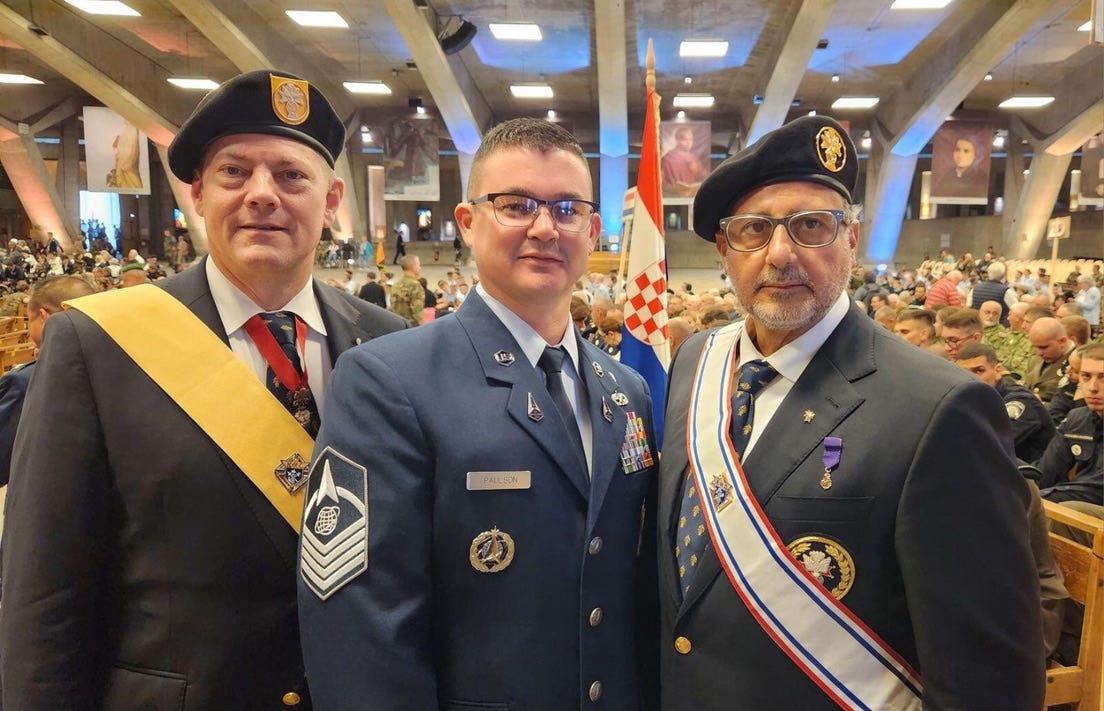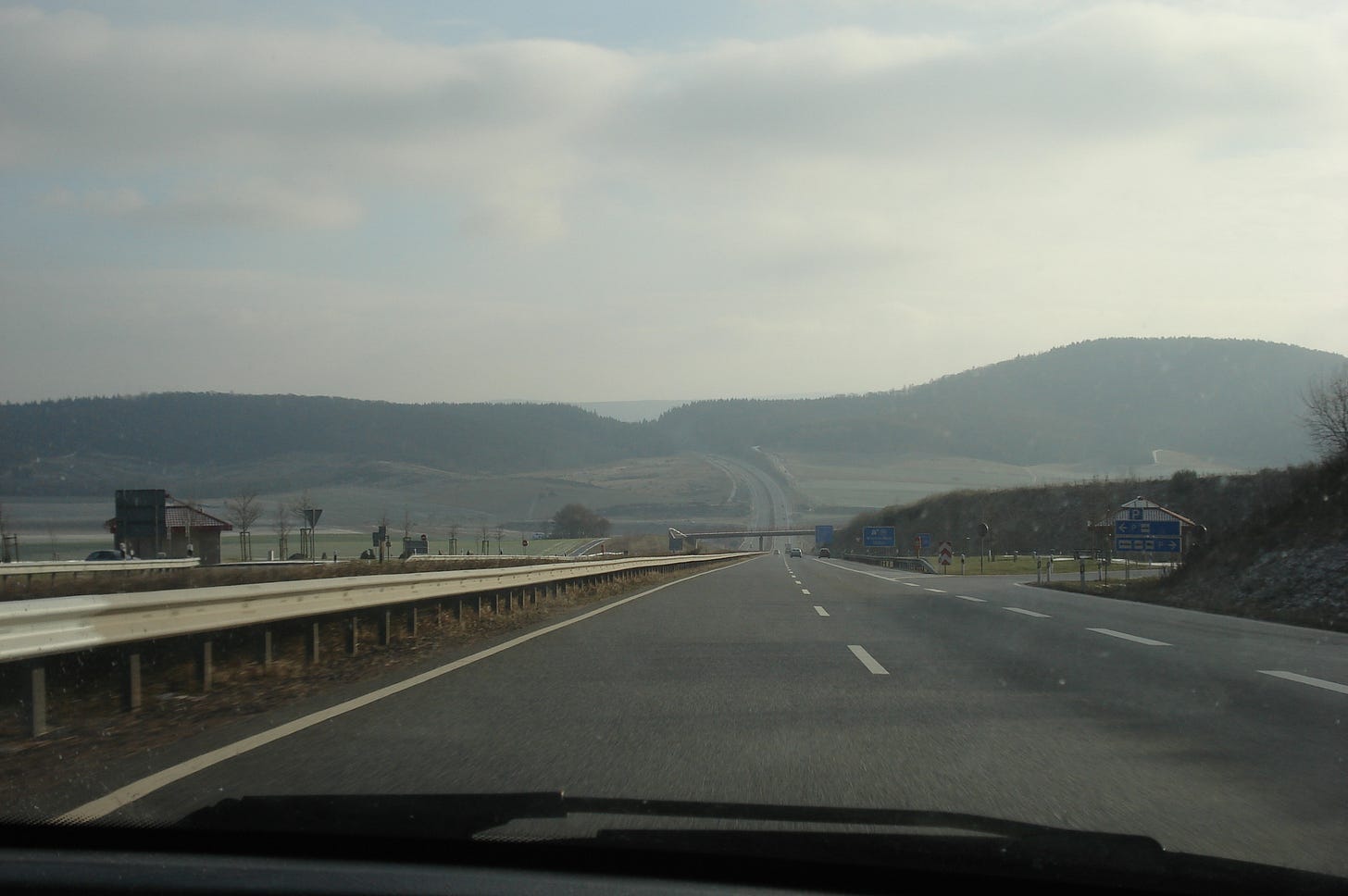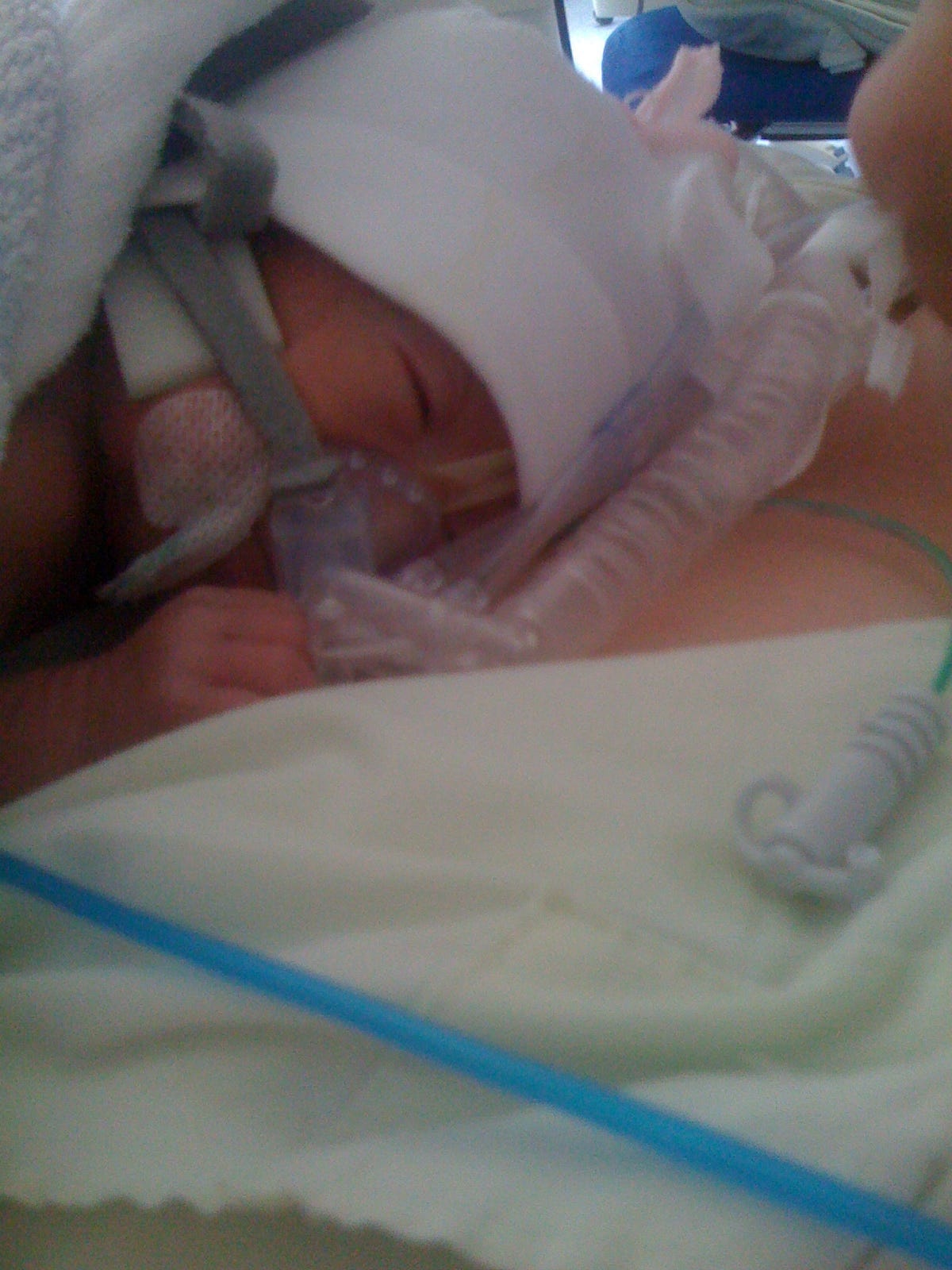Wayward Flame
The Light We Tend Together
Welcome to the second issue of Wayward Purpose. You’ll notice this isn’t your standard newsletter. I’m writing for the lost, the stubborn, neurodivergent, wayward mind, and anyone who can’t stand one more fluffy think-piece. I’m finding my writing voice here in the wild. Wayward Purpose was born on a bad day. A real one. One where hope felt like an inside joke. If anything here lands with you, or you know someone who doesn’t yet have a name for what we share as moral injury, pass it on. The rest? Let’s just get into it.
Changing a culture, especially around suicide and moral injury, takes more than stories or research. These topics are hard to face, and the stigma is real. But acknowledging the wound is the first step in healing. It’s okay to struggle and speak openly, even when it’s uncomfortable. By sharing my journey, failures, and insights, I hope to inspire others to do the same. Change starts with us and grows as we empower each other to lead, restore faith, and find purpose. Wayward Purpose is about turning moral injury into moral leadership. Ensuring despair and suicide never win. This is how we change lives and culture. Together.

Baptismal Fire and The First Spark
Maybe you’ve stood in a chapel with incense thick in the air. Quiet, sacred, and a little suffocating. For me, the baptismal flame was a dare, not a tradition. On the worst days, I light my Lourdes candle from France. Sometimes, I do it just to remind myself I’m still here.
The first time I attended the Easter Vigil, I was deeply moved. I stood in the cold, witnessing the blessed fire carried into the darkness. In that moment, I experienced something profound. That is how Wayward Flame began for me.
Like the eternal flame at Arlington National Cemetery, each of us carries a sacred spark. Sometimes, we bear this light for others. Sometimes, we need someone—or God—to carry us through it.
If you’ve ever felt lost and kept moving anyway, you’ll get it.
The Day That Changed Everything
I remember the sterile German hospital with its cold tile floors and the relentless hum of white lights. My wife sat on the exam table, the paper beneath her crackling with her every movement. We hoped for reassurance, but as the nurse entered with a translator, a chilling dread set in. I had felt unsafe before, but never like this. Suddenly, I stood on the brink of losing everything.
We were far from base, in an unfamiliar place. The translator’s voice was uncertain as she said, “Your wife…she’s going into labor.” Twenty-three weeks. The number hung between us. Urgency followed. Orders in German. Hands on my wife. Her hand trembled in mine as she looked for reassurance I couldn’t give. She was wheeled away. A nurse handed me directions to a different hospital. I drove. Fog filled the road. Headlights cut through. I chain-smoked a pack of cigarettes out of anxiety. Questions echoed in my mind: What if I’m too late?
When I arrived, the whole place throbbed with noise. Forms shuffled. Footsteps echoed. Machinery hummed, and an undercurrent of panic threaded through every fluorescent-lit corridor. My wife was somewhere inside. Not knowing where scraped at my nerves. I paced the linoleum floors. Each breath grew heavier. I couldn’t sit still long enough to think. When I finally found her, she was tucked into a shared room beside another expecting mother who was much further along.
I spent the night on a cracked vinyl couch. The thing squeaked every time I breathed. I paced the hallway, muttering prayers I barely believed. People everywhere, but I’ve never felt more alone.
I used a payphone outside to reach family and friends. My wife eventually told me to go home. Alone, I closed the door to our empty house and broke down. Our cat, Snowball, rubbed against my arm. Quiet comfort. He is gone now. Rest in peace.
While my wife fought for our daughter, I taught the cat to sit. It was something small I could control. Then, a few days later, what we feared happened.
My wife became the emergency. One moment, we were laughing, and the next, her face shifted. Something was wrong, terribly wrong. I sprinted for help, shouting down the hall. The staff moved fast. By the time the nurses rushed in, I had already unlocked her bed and started to push, adrenaline making my hands work before my mind could catch up. We barreled down the corridor together, moving her from one end of the hospital to the other, top floor to basement, lights blurring overhead. People in civilian clothes I’d never seen before appeared from nowhere, throwing on scrubs, snapping into motion.
The clock read 6:15.
I stood outside the operating room, palms pressed against cold metal, whispering jagged, desperate prayers to a God I still wasn’t sure was real. Then, somewhere inside the muffled chaos, I heard it. A cry. Small. Fierce. Impossible. They told me babies that size don’t cry. But I know what I heard. That cry carved itself into my soul.
Later, I whispered to my wife, “I heard her cry.” I know what I heard.
Both survived. Medicine, mercy, or dumb luck; I’ll never know which. When my wife surfaced, pale and groggy, I told her I’d named our daughter Optimus Prime. She actually smiled. I held on to that tiny smile like it was proof we were still here. Later, running on zero sleep, I wheeled her down the hall and popped wheelies just to get one more laugh. We were exhausted. But we were there.
Our Tiny Miracle
Our daughter was born in the middle of alarms and shouted instructions, a life entering the world through pure chaos. She weighed less than a pound. Her arm was no bigger than a Q-tip, her fingers as fine as threads, her skin so translucent it looked like light could pass straight through her. She was wrapped in wires before she ever felt a blanket. A few days earlier, we had signed the form that said if she arrived before 24 weeks, we would have to choose whether to intervene. She came just after the line, barely, mercifully. Each gram she gained felt monumental and hard-won, especially considering that only about 50% of babies born at 24 weeks survive. A silent exhale. A prayer answered.
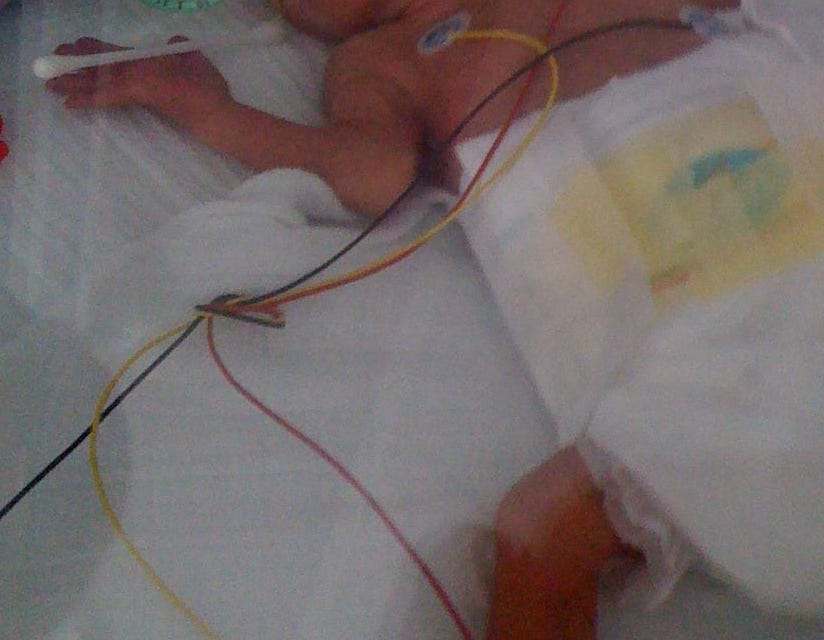
For four and a half months, the NICU became everything to me. Days were counted not by calendars, but by beeps, grams, and oxygen stats. Balloons for weight milestones. Holding her when we were finally allowed to. That place smelled like antiseptic and hope. We scrubbed our hands raw. We hummed lullabies no one else would understand. We prayed in books and songs. Our daughter fought for every breath, every inch of ground.
And we learned early that being present was what mattered most.
That NICU taught us how to love with raw hands and open hearts. It taught us how to be parents and partners in the midst of chaos. My wife and I were nineteen, newlyweds, and making it up as we went. Some nights we sang rock and rap to our daughter while her tiny body rested against our chests; other nights we kangarooed for hours, humming in silence. Those early days carved out something sacred in us. Something quiet, fierce, and real.
The First Borrowed Flame
My faith journey moved through atheism and trauma before settling into something genuine. Like many with ADHD or neurodivergence, once I found clarity, I needed to make it tangible. Something my children could recognize as part of me. I remember sitting on a worn out chair in a coffee shop, the morning light filtering through the trees, when it all clicked for me. The air was crisp, carrying a sense of resolution. There, with a well-thumbed book resting on my knee, I realized that my experiences could light the way for others. I began writing and building, driven by this newfound purpose. Through this process, I rediscovered a gift long forgotten for transforming passion into clarity and direction. I learned to offer others guidance through their own challenges.
Back then, when my daughter was born into a world of pure chaos, my flight chief at the time, then Master Sergeant Christopher Shaver, made space for our family in a way I’ll never forget. Without him, I’m not sure she would be here today. His leadership was evident through his presence, not his speeches. He gave us time, support, and a simple, yet unspoken creed that he lived by and passed on, one that I still carry with me:
“No matter what, I got you.”
That phrase hangs on my wall now, etched into wood on a going-away plaque I kept all these years. It’s not a slogan. It’s a mirror. I became who I am because someone lived those words and meant them. Years later, I heard others say the same about me. Not because I tried to be him, but because I simply passed forward what had been given to me.

Shaver’s quiet care during that season became my blueprint. I remember wishing I could hide what I was carrying, but Shaver never asked for a perfect version of me. He just showed up. When I’m running on empty, my friends and leaders that cared, step in. I owe them more than I can say. Sometimes, a cup of coffee and a bad joke in the dark is all it takes.
Identify at least one person who needs your presence today and intentionally reach out to them. Write your own version of ‘No matter what, I got you’ as a personal commitment, post it where you’ll see it daily, and let it drive you to actively create a culture of presence. One simple action could be sending a 60-second text to someone who might need it today. Just say you’re there for them. These concrete steps have helped me.
The past three years were different. This time, there was no Shaver, no friends close by, no church community; at least not at first. Losses and suicides stacked on top of each other, deepening my loneliness and sharpening every old wound. Unprocessed grief, betrayal, and memories I thought I’d buried came roaring back. Losing the one stable person in my life twice in three years left me untethered, drifting without an anchor. Every waypoint in my life was shattered and erased. My world kept shaking, over and over, and I had no guide, no safety net, no place to land. Just the feeling of being trapped, overwhelmed, and completely on my own.
Faith, neurodivergence, leadership, pain-turned-purpose. Every part of it was forged in fire. When the storm comes again, and I know it will, I will remember what this story taught me through it all.
So let me ask you this:
Who carried your light when it flickered?
Who stood by you in your storm?Reach out to them if you can. And if you’re the one carrying someone else’s light now, let them know you’re there. Don’t wait, take that step today.
Here’s what nobody tells you: protecting your hope is messy. Sometimes you’re the helper. Sometimes you’re the one with nothing left. That’s how it works. That’s how we make it through.
For me, the last few years felt like trying to shield a candle in a hurricane. Friends gone. Family fractured. A marriage nearly lost, twice. The old “just keep going” mantra collapsed under it all. My hope wasn’t heroic; it was survival. Fragile. Flickering. But still there. And somewhere in that darkness, I finally understood again that no one was coming to save me. If I didn’t do the work, the real work, disciplined work, the kind that rebuilds a life from the inside out, then I would lose myself completely.
Healing isn’t the absence of pain; it’s learning to walk with it. Owning it. Managing it.
That path led me to a tool I now carry for myself and offer to others lost in the pit: the Crisis Response Plan. CRP gave language to the chaos. It consists of three crucial components designed to provide clear guidance in times of crisis:
First, identifying warning signs that might indicate a downward spiral;
Second, listing personal reasons to live, acting as a beacon of hope;
Third, naming people who can provide emotional support and hold the light when you can’t.
Not a contract, but a lifeline. Because in crisis, it’s presence, not paperwork, that saves lives. A meal dropped at your door. A late-night text. Someone refusing to leave. The tools for self-management help you get through. A discipline plan built over years of CBTs and training put to use to save yourself.
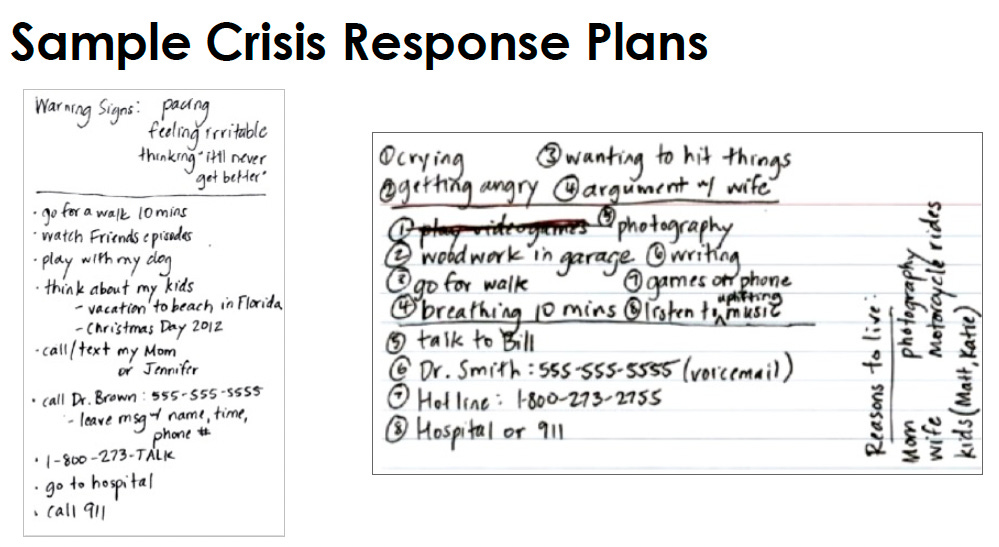
Suicide is a community wound.
I’ve seen it up close. You can stack programs to the ceiling, but if you don’t feel seen, or feel like you matter, none of it reaches you. Sometimes the only way forward is to borrow someone else’s strength just long enough to steady your own.
And if you’re in that place, facing moral injury, grief, shame, loss, or something you can’t even name, you don’t have to pretend it’s fine.
You get to choose who you let in. Even a single text, a call, or letting someone sit with you in the quiet can be enough to break the isolation that pain tries to build around you.
That’s the hope I carry now. Not for show, but for those who need it. Sometimes all we can offer is a reminder the fire never truly dies, even when it’s low.
Fire Taught Me to Stand. Water Taught Me to Stay.
As my wife and I reflected this week, I wrote and she drew, sketching two cupped hands holding a small pool of water. Simple and still. For me, the water represents time. Shimmering, slipping between fingers, and catching the light as it falls. Time never pauses. It only brushes against us, letting us hold its shape for a breath before it slips through our fingers.
As you go about your week, what is one ‘water’ practice you can hold loosely? Consider a practice or moment you tend to over-schedule, and see what happens when you allow it to sit gently in your hands, appreciating its fleeting nature.
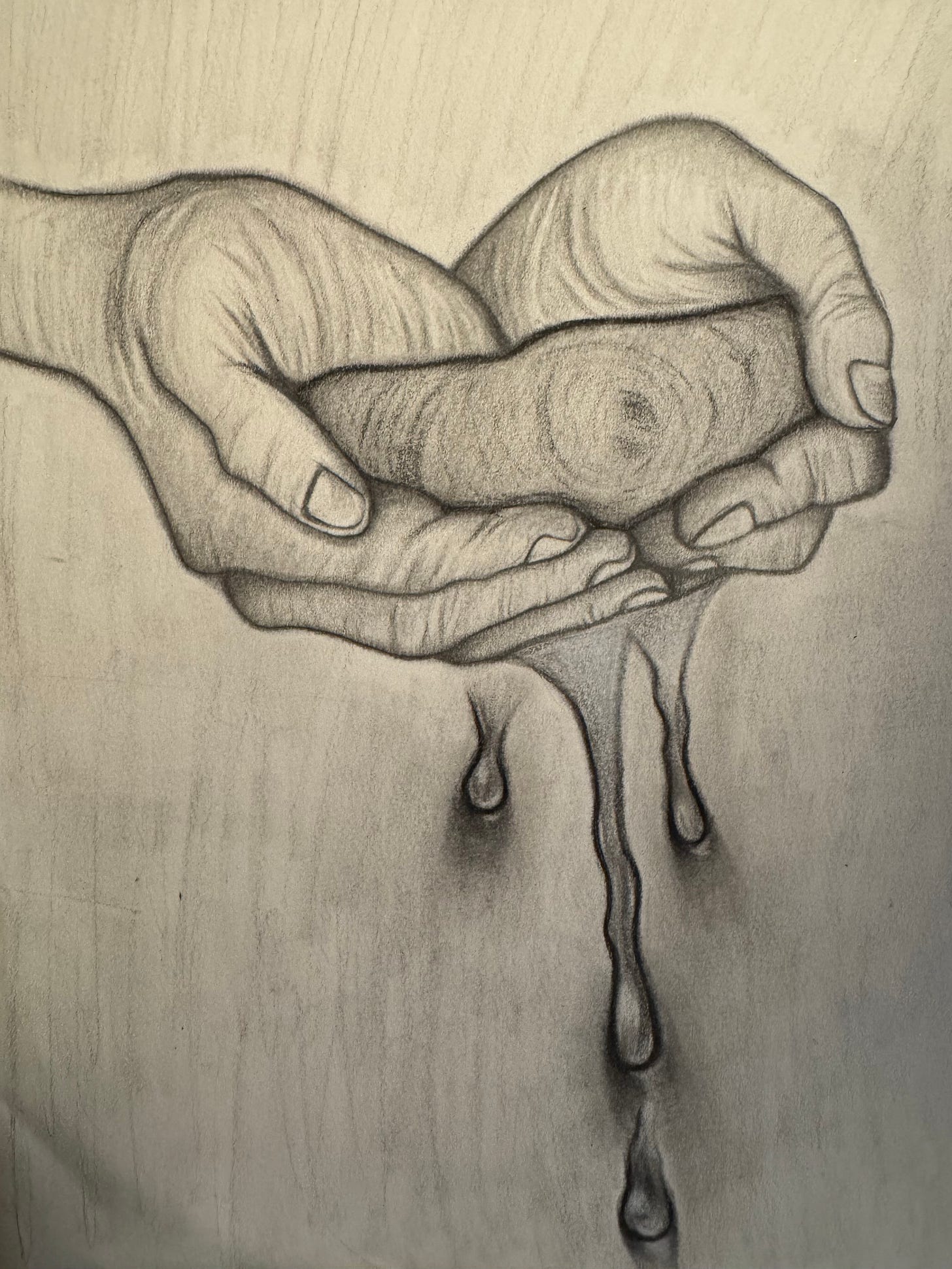
Therapy taught me something weird about ADHD: time bends. Some days disappear. Some minutes stretch forever. I used to be ashamed, but now I just try to show up. That’s all I’ve got.
My wife has heard my old line a thousand times about how we all get the same 24 hours; priorities reveal what matters. I’ve said it so often she just smirks that signature Oh, you sweet idiot, I love you smirk, and replies with something like, “The universe is vast, time is fleeting, and this ranks exactly nowhere.” She’s mastered that art of the joke, and she’s right, at least sometimes. The truth is, time isn’t something you can grip. It slips through your hands, cool and alive, meant to refresh rather than be hoarded. A reminder that every moment is a gift, not a guarantee.
I used to swing between overcommitting and disappearing altogether, trying to hold more water in my hands than they were ever meant to carry. My schedule was always full, yet I felt hollow inside. It’s become essential to treat the present as something sacred, a practice far from perfect but vital. I remind myself not to mourn lost time or grasp for more than I can handle. Releasing the anxieties of tomorrow and focusing on what is within my control today has become my mantra. Though living this way is challenging, it is the only approach that feels genuine to me. The distinction between balance and cadence is crucial—where balance suggests constant juggling, cadence is like the steady thunk of footsteps on a gravel path, a rhythm that grounds and guides without demands of perfection.
Balance is a myth.
Often suggesting that every aspect of our lives is pulling in opposition, vying for space. What’s helped me more is cadence, a rhythm learned first in the military and later in healing. This steady beat keeps me grounded whether the days are heavy or routine, offering a consistency that aligns my life. Discipline, as I’ve come to understand, is its own kind of music.
In uniform, cadences kept us moving and provided a steady rhythm to lean on. In recovery and therapy, I had to find a new rhythm. One that belonged to me. Balance can make it seem like work and life are in constant conflict. Cadence is different.
It’s about learning your pace.
When to push, when to breathe, when to stop for a moment and gather yourself again.
It’s not about being perfect, but about being present. For me, that means slower mornings and more purposeful weeks.
Coffee.
Prayer.
Exercise.
Weekly therapy.
Saying no more often.
Short walks with my wife at night.
More kids’ activities and evening anime.
Building a stronger relationship with God.
A few lines in a journal before the world starts shouting.
Protecting my time, knowing what it is like to nearly lose it.
The most difficult seasons taught me how to live with intention. My rituals aren’t grand; they’re just steady enough to keep me grounded, just rhythmic enough to keep me here.
Time doesn’t stop. It simply gathers for a moment, like water resting in cupped hands.
The Symbol and the Story
Before Wayward Purpose had a name, I was trying to make sense of my own journey. The emblem, the Wayward Flame, arose from confession, healing, and hope forged in the midst of trauma. For a long time, I thought healing meant surviving. Keeping the fire lit, staying guarded, pushing forward, whether I felt anything or not. But life exposes the places where you’ve stopped telling yourself the truth.
Wayward Purpose did not emerge from a workshop or strategy session. It began when I had nothing left but honesty. Faith, discipline, and direction are not slogans; they are survival instincts, rooted in lifelong resiliency for when someone you love is at risk or when you question your identity without a purpose. The symbol stands as a beacon, inviting us to embrace our vulnerability and transform it into strength, urging each of us to light the way for others with empathy and courage.
Coming through that fire forced me to confront my wiring; my ADHD brain, my intensity, misunderstandings of my own neurodivergence, the way I feel everything too much and too loudly sometimes. I notice every detail, every shadow, every wounded edge of a moment. That sensitivity is what makes me show up for others; it’s also what turns inward when I’m overwhelmed.
Sometimes I run.
Sometimes I avoid.
Sometimes I hide behind a version of myself that looks composed while the inside quietly burns.
It’s the same wiring that enables me to solve problems quickly, think strategically, collaborate deeply, and create relentlessly. When aligned, it’s a gift of deep curiosity; when it slips into tunnel vision, it becomes a liability.
There was a Sunday morning I’ll never forget. Kids yelling, shoes missing, jackets tossed everywhere. My wife and her grandma were doing the usual heroic pre-Mass scramble, and I was standing at the bottom of the stairs when something hollow in me finally cracked open. Years had slipped by since those early coffee mornings, which now quietly replaced the old screaming, quiet nights with whiskey, and the weight of it all hit me at once.
“I think I’ll stay home,” I said.
The truth is, I was afraid. Afraid to walk into church carrying cynicism I hadn’t dealt with and wounds I didn’t have words for. Afraid that my questions somehow made me unworthy. And even though there had been countless signs, a higher hand tending my flame long before I ever acknowledged it, I still stood there in stubborn defiance more times than I care to admit.
I wasn’t Catholic yet, and my faith was barely holding together. I told myself I stayed away from church so I wouldn’t confuse the kids, but that was a lie, a paper-thin shield I hid behind. When the house was quiet, I could finally see it: I wasn’t protecting them.
I was projecting my fears onto them.
I handed them distractions. TV, Nintendo Switches, Netflix, YouTube. Not because they needed them, but because I didn’t want to face my own discomfort. I let pop culture and dopamine machines raise my children while I kept my distance from the one place I was afraid to lead them. Not because I doubted God, but because I doubted the relationship I had with Him.
Convictions don’t explode. They leak. One excuse, then another. Next thing you know, they’re gone.
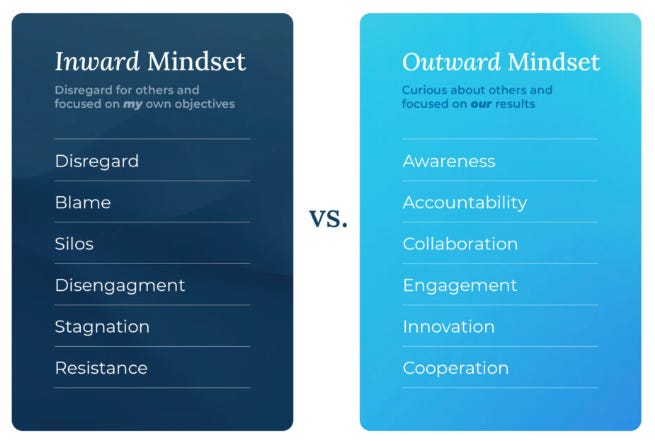
And in the same way the Arbinger Institute describes, I realized I’d been living with an inward mindset. Seeing only my fears, my discomfort, my excuses. If I wanted an outward mindset, one focused on the people I loved, the shift had to begin with me.
That morning, something finally gave. I chose (imperfectly and anxiously) to stop letting my fear shape my children’s view of faith. When I began my own faith journey with the help of my priest, I walked with them into the chapel, unsure of myself but willing to take the next step anyway.
Wayward Purpose was born from that same realization that not all wounds look like wounds. Some behaviors may appear as avoidance, projection, silence, overthinking, or staying home when you yearn to engage. Some are subtle, others overwhelming; but all of them matter, and all deserve to be named.
From Moral Injury to Moral Leadership
I know firsthand that silence only deepens those unseen wounds. Here, we acknowledge our pain. It doesn’t fix everything, but it’s where healing begins. Change isn’t built on slogans; it’s built on honesty, on speaking the hard things out loud, on looking into someone’s eyes and realizing the battle isn’t just yours.
To really create a shared process where pain is named collectively, consider engaging in a group reflection. What would it look like if we brought our individual stories into a communal dialogue, allowing each person to share their truth? How might understanding the collective struggle deepen our empathy and strengthen our community? Let’s explore these questions together, because when we create space for shared experiences, we pave the way for true healing and transformation.
The veterans in David Wood’s What Have We Done offer some of the clearest testimonies of what moral injury sounds like for those who have seen war up close. Voices that only emerge when someone finally dares to name the truth. Their words echo the quiet burdens many carry but rarely speak aloud:
“I did what I had to do…so why does it still feel wrong?”
“I came home, but a part of me didn’t make it back.”
“I can’t explain what broke inside me, but I feel it every day.”
“I’m ashamed of things I had no real choice in.”
“Everyone tells me I should be proud, but all I feel is the weight.”
“I don’t recognize who I was then…or who I am now.”
“I survived, but sometimes surviving feels harder than what happened.”
“I’m angry at myself for things I’d forgive in someone else.”
“I did everything right, and it still feels like I failed.”
“I keep waiting to feel whole again, but the crack is still there.”
These are not dramatic statements. They’re honest ones. Naming them is where restoration begins.

Systems did not save me; people did. In leadership, it’s presence that matters more than performance. Sometimes the fix is simple: show up, stay put, shut up. That’s it. The mantra “Be There” serves as a reminder for leaders to prioritize genuine presence over mere performance.
Leadership isn’t about titles or appearances. It’s about showing up, especially when it’s messy. Some of the best leaders I’ve known were the ones willing to admit when they were scared, or lost, or needed help too.
Begin with small actions: set aside your phone, reach out to someone, or sit in silence with them. These habits help turn presence into practice.
The last few years tested my limits: friends gone, family lost, marriage almost lost. Sometimes my flame feels almost gone.
But still, I carry it.
I am passionate about my work, about the uniform I wear, about the people I serve with, but I’ve seen colleagues, friends, tough capable people, hide pain because they were convinced it made them weak. A mentor once told me that small burdens accumulate and matter. I’ve learned to spot fading hope in others, mostly because I’ve been there myself. Belonging isn’t about fitting in; it’s about sticking around, even when it’s uncomfortable. Trust comes from small, real actions. Never from assumptions.
We live in a time when attention is a commodity, and it has never been more difficult to maintain focus.

This writing is for wanderers. Like the vet I met at 3 a.m. in a Waffle House (TDY life, right?), or the friend who texts me at midnight, or getting food poisoning from chicken wings on a business trip, but still making it to a meeting with a friend, or for anyone who’s walked through fire and needs a break.
I’m not a traditional researcher, but a discoverer and explorer making sense, building bridges, and leaving the path clearer for others.
I only hope is that this helps someone else keep going. Or, to name what they have never been able to name and start the hard work of healing. That’s why I write these.
Here, my curiosity is not a flaw, but a guide.
Perfection is overrated. Just show up. In person, not online. We belong in the in-between spots: the kid who moved every year, the vet who can’t settle in, the folks who feel like extras in someone else’s story.
Real connection and healing doesn’t happen in a spreadsheet. It happens in parking lots, in hospital waiting rooms, when a friend brings you takeout because you haven’t eaten all day, or when someone just sits with you and lets you be a mess. Sometimes, all you need is for someone to say, ‘Yeah, this is hard.’
Here, we will grow. This is a place to find mentors, fellow travelers, and resources to help you persevere. Faith is more than doctrine; it is support in times of need. Whether through a shared meal or a quiet reminder you are not alone.
This is the bridge we hope to build. The wayward path from moral injury to moral leadership, through faith, discipline, and direction. Where will your own path take you?
Closing the Circle
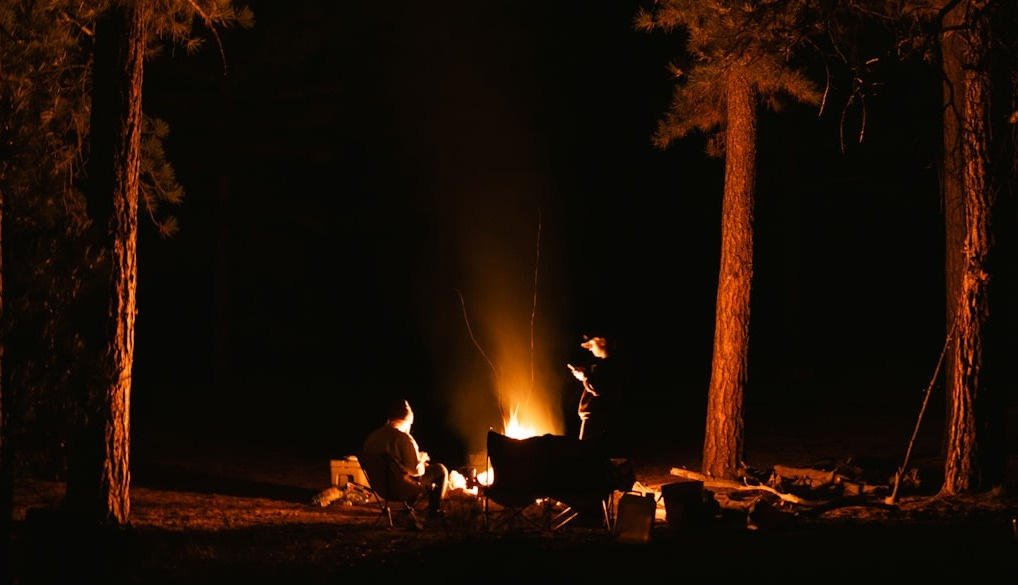
Imagine a campfire at dusk: honest questions shared, stories told in the half-light.
Changing a culture takes stubborn presence.
It takes courage to name pain, and the grace to let others do the same. I’m here not with answers, but with needs. When moral injury hit my family, it didn’t stop with me. It rippled out. My wife, my kids, even my friends felt it.
These statistics are real: they’re our kids, families, and friends.
Wayward Purpose is about building bridges in the spaces institutions overlook.
Most healing doesn’t come from a program, but from a person, when you need it most. Strangers have carried me when I couldn’t walk alone. Here, faith is present, and it keeps us moving.
Wayward Purpose welcomes people from every background. Faith is a source of strength for many (my own roots are Catholic), but it isn’t a requirement to be here. We honor different beliefs and perspectives, and we’re committed to creating a space where anyone willing to do the inner work can turn moral injury into moral leadership. Whether your strength comes from faith, community, or simple human resilience, you belong in this work. This isn’t just theory. It’s my lived experience, as well as the research we are conducting. I hope this space becomes a source of strength for you as well.
If you are still reading, perhaps you are learning to persevere in the face of adversity. Wayward Purpose is a refuge for the quietly resilient. I am not here to preach, but to sit beside you and offer support.
Where do you feel most worn down?
Where are you strongest?
Who supported you when you could not support yourself?
If you’re ready, tell your story. If you’re not, that’s fine too. This space is here so no one has to go it alone.
If this means something to you, stick around. Pass it on to someone who might need it. That’s all we ask.
And if you want to know more about the person who shaped my journey, and the man who quite literally gave my daughter a chance to live, my friend, mentor, and fellow wayward traveler, Christopher Shaver, you can find him on LinkedIn. Or support his mission at Camp Pendleton here.
Chris now serves as the Community Director for Young Life (Club Beyond) at Camp Pendleton, walking shoulder to shoulder with military teens who often carry more weight than most adults realize. He builds bridges between faith and the real world. Between the churched, the unchurched, and the unseen. His work is simple but sacred: showing young military connected people that they are known, valued, and loved.
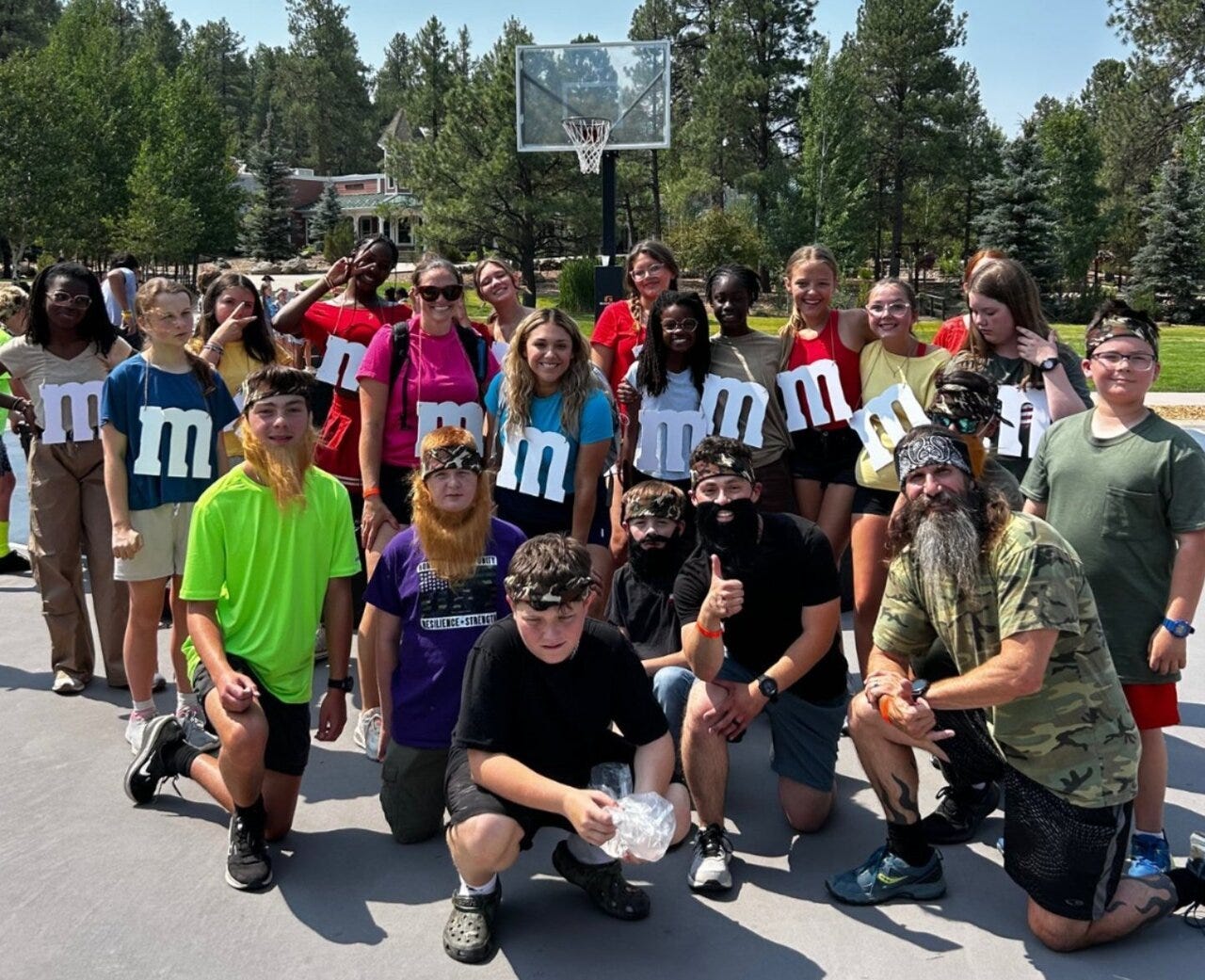
Moral injury never stays contained. I’ve watched it ripple through families, friendships, and whole communities—including my own. Chris understands that better than anyone I know. If you feel called to support him and what he’s building at Camp Pendleton, know that he is changing futures in ways that won’t make headlines but will echo in lives for years to come.
Thank you for being part of this journey with us.
